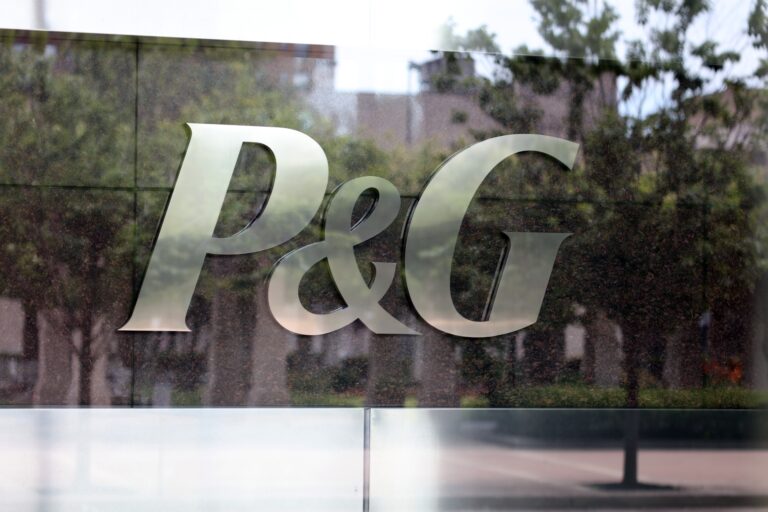In income investing, durability is of the utmost importance. This is because the idea of dividend investing is to one day rely on passive income to pay for living expenses. That can only be done if the underlying dividend payers in a portfolio have business models that are resilient enough to endure business cycle downturns. Having hiked its dividend for 68 consecutive years, Procter & Gamble (PG) comfortably meets the 50-year requirement to be a Dividend King.
Claim 70% Off TipRanks Premium
- Unlock hedge fund-level data and powerful investing tools for smarter, sharper decisions
- Stay ahead of the market with the latest news and analysis and maximize your portfolio's potential
Following its Fiscal Q1 2025 earnings report in October, my outlook toward Procter & Gamble’s operations is positive. However, the stock’s 25% rally so far in Calendar Year 2024 leads me to believe that shares are overvalued at the current valuation. Thus, I’m starting coverage with a Hold rating.

Procter & Gamble Delivered Bottom Line Growth in Q1
On October 18th, Procter & Gamble’s Q1 earnings report supported my Hold rating. The company’s net sales decreased by 0.6% year-over-year to $21.7 billion during the first quarter. That came in below the Wall Street consensus of $22 billion. This topline miss can be attributed to unfavorable foreign currency rates in the quarter. Taking that into account, Procter & Gamble’s net sales would have edged 2% higher during the quarter.
However, the firm’s diluted core EPS rose by 5.5% over the year-ago period to $1.93 for the quarter. That topped the analyst consensus of $1.90. This uptick in the bottom line was driven by a 120-basis point expansion in non-GAAP profit margin to 21.9%.
The Outlook Remains Solid for Procter & Gamble
Procter & Gamble also looks to have a promising future ahead of itself, which is another element that backs up my neutral stance toward the stock despite its stretched valuation. Led by 1% increases in volume and pricing, the company’s 2% organic sales growth came on top of 7% organic sales growth in the year-ago period. Per CFO Andre Schulten’s opening remarks during the Q1 2025 earnings call, eight out of 10 product categories grew or held organic sales for the quarter.
That included mid-single-digit growth in the family care, home care, and personal healthcare product categories. Procter & Gamble’s operating results serve as confirmation that it continues to meet the evolving preferences of consumers overall. One example of this is the Olay Cleansing Melts launched earlier in 2024, which Schulten pointed out was doing very well on the disruptive innovation front. Another example is the new tile form of laundry detergent, Tide Evo, which was also launched earlier this year.
This product launch addresses consumer needs by making a laundry detergent that’s more effortless for consumers to use in their busy lives. As a result of Procter & Gamble’s continued innovation, analysts are optimistic about the company. For FY 2025, a 5.6% rise in diluted core EPS to $6.96 is being anticipated. This is followed by another 6.6% jump to $7.42 in FY 2026 and an additional 6.5% increase to $7.90 in FY 2027.
A Safe Dividend and Sturdy Balance Sheet
Procter & Gamble’s 2.2% dividend yield is below the consumer defensive sector average of approximately 2.5%, but an unmatched track record for dividend growth among sector peers is another reason for my Hold rating. Procter & Gamble’s dividend payout ratio is positioned to be in the high 50% range in FY 2025. This is where I like to see a payout ratio for a consumer staple. That arguably sets it up for reliable mid-single-digit annual dividend growth in the years ahead.
Procter & Gamble is also financially vigorous. The company’s interest coverage ratio in its FQ1 2025 was 50.9. That suggests Procter & Gamble could remain financially solvent amid a potential downturn in its business. This explains the company’s AA- credit rating from S&P Global (SPGI) on a stable outlook.
Procter & Gamble’s Shares Could Be Overvalued
The one element that gives me pause on Procter & Gamble enough to be neutral rather than bullish is its valuation. The stock is trading at a current-year P/E ratio of 25.8. For context, that’s moderately higher than the 10-year average P/E ratio of 22.7. Procter & Gamble’s forward annual diluted core EPS growth outlook of 6.3% is 100 basis points above its 10-year average growth rate of 5.3%.
To be clear, I believe this justifies a higher valuation multiple than the 10-year average P/E ratio. However, I would split the difference and argue that a valuation multiple of approximately 24 (in line with the five-year average) is closer to fair value.
Is Procter & Gamble Stock a Buy, According to Analysts?
Turning to Wall Street, analysts have a Moderate Buy rating consensus for Procter & Gamble. Out of 17 analysts, 12 have issued Buy ratings and five have assigned Hold ratings in the last three months. The average 12-month price target of $182.31 would represent a 2.35% upside from the current share price.

The Takeaway
Over the years, Procter & Gamble has earned its place in the conversation of the most dependable dividend payers. The company looks to be operationally healthy. Until Procter & Gamble either grows into its valuation or experiences a correction, though, I’m standing by my Hold rating.
















